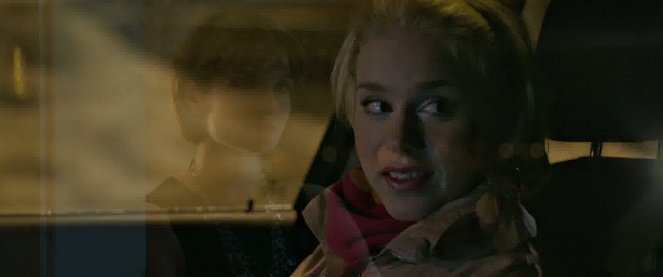Reżyseria:
Aku LouhimiesZdjęcia:
Tuomo HutriMuzyka:
Markus KoskinenObsada:
Alma Pöysti, Aino Louhimies, Sean Pertwee, Deogracias Masomi, Laura Birn, Konsta Mäkelä, Amanda Pilke, Taneli Mäkelä, Jasper Pääkkönen, Eemeli Louhimies (więcej)VOD (1)
Opisy(1)
Vuosaari to wielokulturowe wschodnie przedmieścia Helsinek, gdzie w pewien śnieżny zimowy tydzień krzyżują się drogi kilkorga bohaterów. Ćpunka Iiris i niebieski ptak Make kochają się i nienawidzą. 17-letnia Milla pragnie uciec od zwyczajnego życia i rozpocząć karierę modelki. Samotna matka Marika wręcza każdemu z bliskich wyraz swoich uczuć, jakby się z nimi żegnała. Pewien mąż szuka ciepła i zrozumienia u blondwłosej kochanki, bo nie znajduje ich u zimnej jak lód żony. Chłopczyk z rozbitej rodziny przelewa wszystkie uczucia na psa, którym się opiekuje... (Aurora)
(więcej)Recenzje (5)
I spent half a year in Finland. With difficulties, I got to know the local population and I can now say with clear conscience that I have not yet seen a better Finnish drama that would accurately capture the inaccessible nature of the Finns. Naked Harbour fascinated me by its characters. Winter is the perfect setting for showing the darkest depths of the Finnish soul. I also perceive it as the time of the year when our dark side comes forth and we only feel good when we drink beer or cider. You can also feel good next to the crates you’d find in every department store, and there is simply no way back. At those times, one realizes how important light and sun are for human bodies.
()
European Nordic countries bear the stigma of depressive regions, where lack of light is battled for half a year and where alcoholics and melancholic souls thrive. On the other hand, Finland consistently maintains its position at the top of the happiness index and usually wins, so it's probably just a prejudice. Naked Harbour, however, caters to this prejudice because we observe numerous characters who are exposed to stress, and hostility, and have the inability to form functional romantic relationships. So much pain, bitterness, and despair are not seen this often. It's like emotional depressive porn, causing anxiety, and only the last two minutes show a slightly more encouraging glimpse into the future of some of the film's protagonists. The film is very well acted and I have no complaints about the direction, but the selection of motifs is too selective and I definitely don't recommend the film to viewers prone to melancholy. Overall impression: 75%.
()
Here it's normal that we all just fuck each other like this... A European art film drama in an almost pejorative sense, where I have two problems in particular: a) all the storylines seem to be hurtling towards a climax, but it either doesn't happen or is terribly bland because your attention is divided over two hours among more than ten characters in almost equal parts, b) stories about how ordinary, stupid people arrive at happiness through their passivity are imo unworthy of cinematic treatment.
()
What I expect from Finnish filmmakers are a) off-the-rails comedies that don’t pull any punches, b) dramas that make me feel a wave of depression wash over me. This one was the latter type, and it certainly didn't disappoint. Granted, the story wasn’t the easiest to follow, but after a while, I started keeping track of the multitude of characters, and it got better. To be honest, I was expecting all the storylines to intersect at some point, as is usually the case, but the Finns didn’t bother with any big punchlines and let the conclusions of all the plotlines float freely, and it was quite refreshing. I'm not saying it was a masterpiece, but I quite enjoyed it and had a decent time. I even savored all that depression. / Lesson learned: Finnish love is a pretty vague concept.
()
A mosaic assembled from the stories of lost individuals, united by the desire for love and recognition, or the longing to give love to someone, yet all of them are swept by the boundless adversity of fate. Finnish director Aku Louhimies serves up a hefty dose of depression with his cold Nordic storytelling style, yet at the very end of the film, a glimmer of hope shines for at least some of the characters, hinting at better days ahead. Most of the sadness probably came from the story of the little boy and his beloved dog. This really struck me, especially when confronted with the callous mother bragging to her friends in an alcoholic haze about how she had treated the animal. (80%)
()

